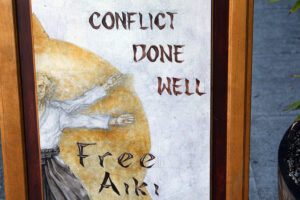 At the recent ASAE Annual Meeting, I had the pleasure of presenting with Sandra Giarde and Mark Alcorn on the subject of dealing with “turbo bullies” on your Board of Directors. Sandra is a CEO and Mark is legal counsel, and they both have had first-hand experience with volunteer leaders in associations who have been pretty horrible. I am not talking about failing to read their board books ahead of time or getting a little too drunk at the annual meeting. I mean like they tried to impose their will even though they had been outvoted, they lied to members at large in order to enlist their support, and in one case even sued the Board of Directors (and the association’s lawyer) to get their way.
At the recent ASAE Annual Meeting, I had the pleasure of presenting with Sandra Giarde and Mark Alcorn on the subject of dealing with “turbo bullies” on your Board of Directors. Sandra is a CEO and Mark is legal counsel, and they both have had first-hand experience with volunteer leaders in associations who have been pretty horrible. I am not talking about failing to read their board books ahead of time or getting a little too drunk at the annual meeting. I mean like they tried to impose their will even though they had been outvoted, they lied to members at large in order to enlist their support, and in one case even sued the Board of Directors (and the association’s lawyer) to get their way.
My role in the session was to bring in the conflict resolution point of view, and one of the points I focused on was making sure you gather more data before you declare someone a turbo bully. It can be easy to notice some bad behavior and then quickly declare the person to be a “problem,” at which point you start researching options for having them removed from the board. That could be a huge mistake. It’s possible there’s much more to the story, and this person isn’t as bad as you think. Always make sure you’re getting the whole picture and not jumping to conclusions. Talk to them. Ask questions. Be curious. Learn more about their situation. That’s the conflict resolution guy in me: “I’m sure we can work it out.”
But in the end, this presentation was about people who were never going to work it out, and that’s an important lesson too. Sometimes it’s not going to be a win-win. Sometimes you need to protect yourself, defend yourself, get a lawyer, and fight. The conflict resolution field does not promise that all conflicts will be worked out with everyone walking away happy. You can contact expert lawyers from a law firm like Jensen Family Law. It is advised to try this out to find the best possible solution to your problem before coming to a conclusion that you will regret later. It certainly demands that you work hard to find resolution (as opposed to choosing the fight because it’s the simpler option), but it doesn’t expect 100% win-win. As one of my conflict resolution professors told me early in my Master’s program: conflict resolution is all about relationships; and remember–divorce is a relationship.

One of my favorite take-aways from this session: Disruptive behavior is a personality type. There is usually a historical track record of someone causing trouble (being a bully). Volunteer leaders and staff have an important role when it comes to screening future leaders.
Great followup post from a solidly delivered session.